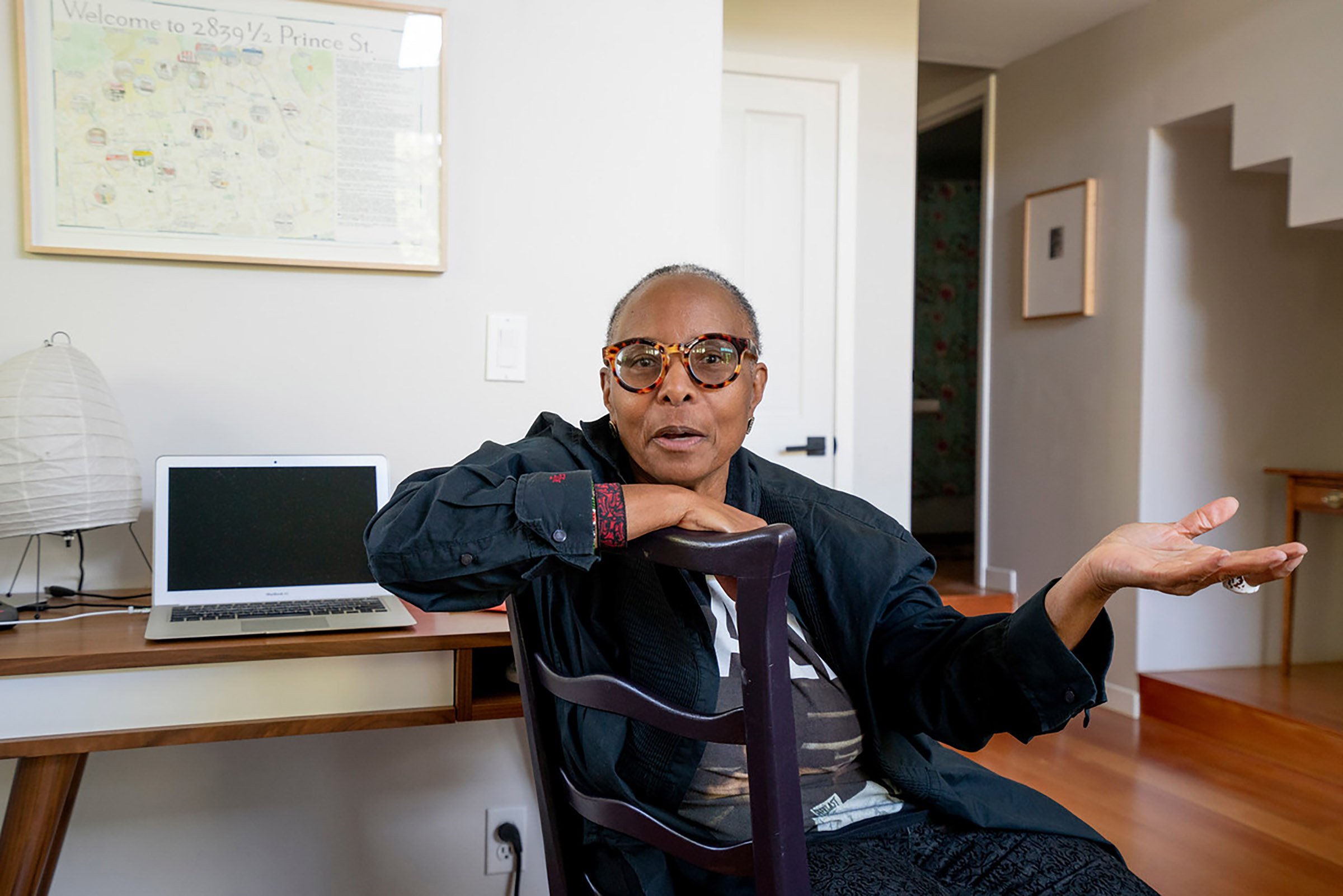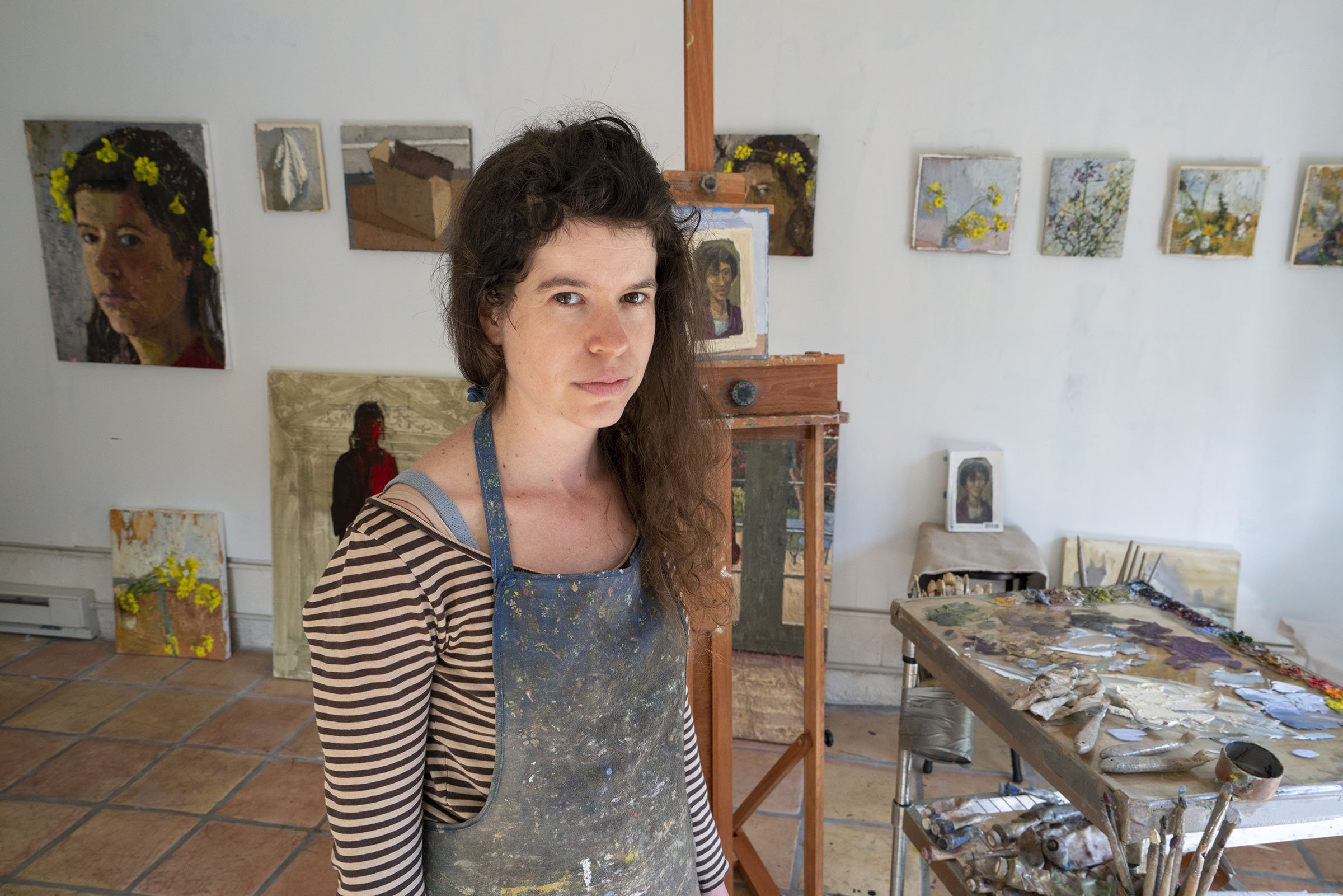Darrah Teitel
Socialist and Playwright—November ’20 through February ’21
Based In Toronto, Canada
Q: During your residency, you were able to finish your play “Forever Young: A Ghetto Story,” about youthful Jewish revolutionaries living in the Warsaw Ghetto, and then get it produced soon after. That seems like a successful outcome!
A: Being in Berkeley for Peleh was truly one of the best writing experiences I’ve ever had. I came out of those months with a play good enough to get produced the second I sent it off. It propelled my career. I just learned that the play will be published soon by Talon/Sciroco Books.
Q: What was the secret sauce that made this possible?
A: The residency’s approach is to support parents as artists, and artists as parents. In other words, to support the whole life. I’ve never seen that replicated anywhere. Not in Canada, and not in the theater world. This means, first, that I had the time and space to actually do the work, while my family could have an experience of their own. Even more specifically, I realized that as a working parent, I haven’t had time to do the many iterations necessary to move a play forward. And I haven’t had that since. Also the Feijoa tree in the yard. We ate so many. It’s obviously a Feijoa-based secret sauce.
Q: Your play is about youth and the stories they tell in order to make a difference. As a child actor, and as a child playwright, you came to understand the connections between childhood, art, and creativity early.
A: As a child I was an actor in some professional productions. I spent a lot of time waiting for my scenes, and to amuse myself I started writing a play, which Toronto’s Young People’s Theatre put on stage when I was 11. I feel really lucky that I was given permission to write, and to be an artist, before I was old enough to have any self-conscious feelings. If you let a child do art they won’t experience the anguish of imposter syndrome later in life.
Q: As a socialist and labour organizer as well as a playwright, you’ve had to find ways to separate those modes of engagement. But at base, it seems that art and the health of communities are deeply connected.
A: There are only two roads forward. One is of nihilism, despair, and isolation, where you buy a gun to protect your family. The other is looking to the future with a project, to organize one another, depend on one another, demand better of one another, find majority power to work together for the same goal, and away from the status quo. That’s the project for me as an artist too: to remind people of that power and that possibility.
Q: Your eldest child, Julius, remembers the residency pretty well, although he/they left when they were 7.
A: Julius continually asks when we are going back. He loved running around the hills of Berkeley. It was the best school experience he ever had. [My partner] Sebastian says the only thing we ever need is Berkeley. It’s soaked into our subconscious. I can’t say enough good things about the experience. The baby, Alejandro, still loves Feijoa. They’re really hard to find in Canada, by the way.
Darrah Teitel is a playwright living in Toronto. She is a graduate of The National Theatre School of Canada’s Playwriting program. Her most recent credits include Forever Young (Great Canadian Theatre Company 2022) The Omnibus Bill (Counterpoint Players 2019) Behaviour (Great Canadian Theatre Company 2019) Corpus (Teesri Duniya 2014) The Apology (Alberta Theatre Projects 2013). Darrah is the winner of several awards for her plays and has been nominated for Dora, META, Betty Mitchell and Prix Rideau awards for best new play. She was a member of the 2007, 2011, and 2012 Banff Playwright’s Colony, The MacDowell Colony, The Gros Morne Playwrights Residency and the Asylum Arts Peleh Family Artists Residency.




